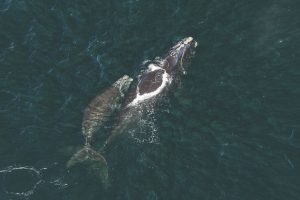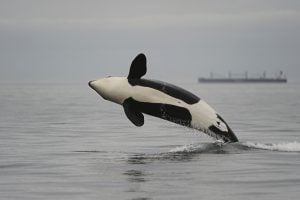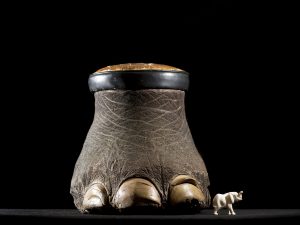
Wildlife
Punctuation’s mark: Can we save the critically endangered North Atlantic right whale?
After a series of mass deaths in recent years, what can we do?
- 4110 words
- 17 minutes
This article is over 5 years old and may contain outdated information.
Wildlife

When whales are spotted in the Pacific Ocean, it’s a thing of beauty. But when a baby whale washes ashore, on the verge of death, it’s heartbreaking. Particularly if that whale is a false killer whale, a rare species hardly ever seen in North America. As the name implies, they resemble killer whales in size and shape, but are in fact part of the dolphin family.
A baby false killer whale was found on North Chesterman Beach near Tofino, B.C. last Thursday, unable to swim. It was supported by local officials until a team from the Vancouver Aquarium Marine Mammal Rescue Centre arrived.

The male baby dolphin was transported by air from Tofino to Vancouver and is now under constant care. Vancouver Aquarium head veterinarian Dr. Martin Haulena says the dolphin is in critical condition and his chances of survival are slim. “Statistically, the odds are stacked against him.”
The dolphin shows signs of pneumonia and was found with lacerations all over his body, likely the result of passing boats. The Vancouver Aquarium team isn’t sure how the month-old calf ended up on the B.C. shore, but believe he became separated from his mother either because they lost each other or the mother died. Without milk, the stranded calf became progressively weaker.
Currently, the dolphin is too weak to swim, and is supported in a pool by a sling, under constant watch. Haulena says it takes six to eight weeks for a critical animal to swim on its own. “The rehabilitation process is very intensive.”

It is the first time the aquarium has treated a false killer whale. They are extremely rare and usually aren’t found swimming in Canadian waters as they’re tropical and sub-tropical animals.
Although it is too early to tell if this calf will survive, Fisheries and Oceans Canada will decide if he will be set free to join another pod of dolphins. But Haulena says it’s unlikely since the dependent calf was separated so early in his life. “They are quite social and a lone animal has a lower chance of success,” Haulena says.
The young dolphin started showing a little more energy last night. He is now able to open his eyes and mouth on his own and veterinarians say they started hearing vocalization, which is a good sign.
Are you passionate about Canadian geography?
You can support Canadian Geographic in 3 ways:

Wildlife
After a series of mass deaths in recent years, what can we do?

Wildlife
When one of the few remaining females of reproductive age in the southern resident population of North Pacific killer whales was found dead near Comox B.C. in 2014, an investigation was launched. The results highlight the challenges of protecting our most iconic marine mammals.

Wildlife
An estimated annual $175-billion business, the illegal trade in wildlife is the world’s fourth-largest criminal enterprise. It stands to radically alter the animal kingdom.

Wildlife
Are icebreakers ruining narwhals’ summer getaway? Plus, Montreal’s whale-ward minkes, Canada’s first North Atlantic right whale visit of the year, a new K pod baby, and humpback and orca continue to clash